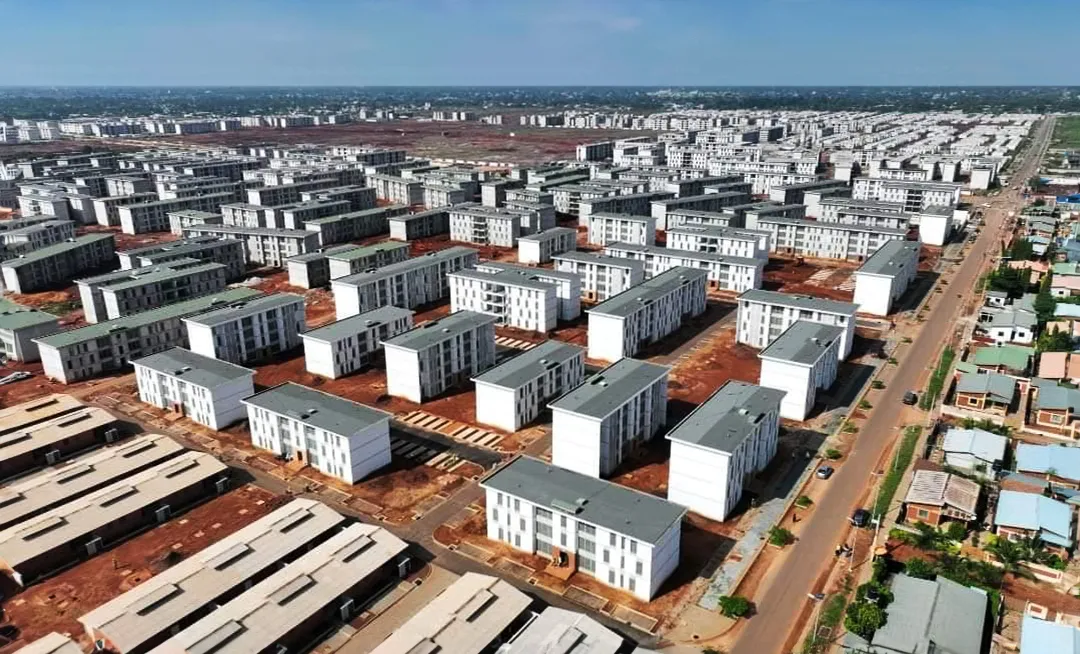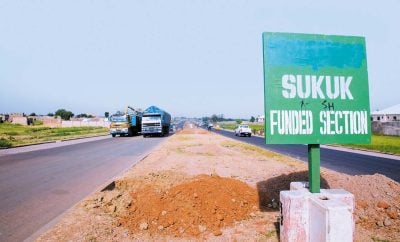This article was produced with the support of The West African Development Bank
The UN’s Sustainable Development Goal (SDG) 11 – Sustainable Cities and Communities – maintains that access to decent and affordable housing is a fundamental human need and one that should be available to the majority by 2030.
While the aim is laudable, practicality is another matter. Everywhere, the housing sector is complex and challenging due to the nature of the value chains involved.
To be successful, social housing programmes often rely on the availability of essential services such as electricity, a clean water supply, sanitation and connectivity, particularly transport to connect life spaces to workplaces, under optimum time conditions and at reasonable cost.
Land laws, taxation, regulations and various industrial contingencies linked to the production of building materials are also fundamental issues to be addressed.
In addition, the overall experience and business models of property developers, the skills of the construction workforce, and the availability and conditionalities of financing on both the supply and demand sides, contribute to making access to affordable housing a major challenge for millions.
As Africa’s population continues to grow, pressures on the housing market are increasing, exacerbating the difficulties facing many people in acquiring decent housing. This situation is particularly worrying in urban areas, where rapid and inadequately planned building is leading to insalubrious slums, increasing the deficit of decent housing for families.
In the West African Economic and Monetary Union (WAEMU) region, the housing deficit is estimated at 3.5m units. The shortfall is growing by nearly 250,000 units per year, under the compound effects of population growth and urbanisation.
There are several challenges related to financing sustainable housing in the WAEMU zone. The major ones include:
The inadequacy of commercial banks’ provision to meet the need for housing finance, with mortgage loans accountingfor less than 5% of loans granted by the banking system.
The reasons why the mortgage systems are so underdeveloped include difficulties in producing property deeds, which are indispensable to banks as collateral; the low number of households deemed eligible for mortgages; and the inconsistent nature of the incomes of people who earn their livelihoods in the informal sector. Add to this the often institutional weaknesses in handling the complex processes involved in mortgage loans and it becomes obvious why this sector has remained very basic in the region.
Another difficulty is that private real estate developers are reluctant to invest in social housing programmes. They complain about the lack of government support in making land available and covering the cost of servicing as well as the lack of guarantee mechanisms, which reduce the risk of financing low or inconsistent-income households.
There is also the widespread trend to finance housing through consumer credit, with maturities of over seven years and the possibility of renewal, leading to a saturation of household borrowing capacity for mortgage loans.
The way forward
Analysing the current state of affordable housing in the region and taking into account all the hurdles against an expansion of this sector, it becomes clear that the solution must include the following approaches.
First, it is imperative to improve the institutional and regulatory frameworks that facilitate the issuance of property deeds. The aim must be to harmonise, speed up and reduce the cost of issuing land deeds. Valid title deeds go a long way in making it easier to procure financing from banks and mortgage companies.
Given that land purchase and service development costs can account for up to 40% of house building expenses, governments should take this on to encourage property developers to venture into affordable housing.
It is also important to promote new methods of home ownership – such as lease-purchase or rent-to-own, which allow prospective buyers to own their homes. They eliminate the need to pay the full sale price upfront and instead
allow the prospective owner to stagger payments while living in the property, paying rent and adding savings to their account.
The volume of the current housing stock can also be increased by applying new mass production techniques, such as in China and other Asian countries and costs can be kept down by using local materials instead of imported ones.
BOAD takes the lead
Aware of the urgent need for decent housing as well as the constraints to its development, the West African Development Bank (BOAD) has placed affordable housing, particularly social housing as a priority for action in its DJOLIBA 2021-2025 Strategic Plan.
As the reference bank for sustainable impact on the integration and transformation of West Africa, BOAD’s core vision is to facilitate access for low-income populations to decent housing and promote dynamic and environmentally respectful sectors in construction, real estate and finance.
BOAD’s determination to finance affordable property is based on its commitment to support the WAEMU member countries’ projects and programmes, particularly those promoting sustainable development and social inclusion.
BOAD operates on both the supply and demand sides. On the supply side, it proposes and seeks financing solutions adapted to the contexts of beneficiary countries, including capacity-building measures for players in the ecosystem and cash advances for housing studies.
In addition, by including environmental and social criteria in the selection of financing projects, the Bank also encourages sustainable practices in the real estate sector, thereby strengthening the positive impact of its operations.
BOAD is also involved in increasing the supply of affordable housing by supporting private initiatives in the real estate sector. The bank aims to boost the regional market and increase the production of housing adapted to the growing needs of its population.
In financial terms, the Bank’s commitment has translated into XOF165bn (€252m) of funding allocated to borrower countries since 2016, the bulk of which was non-concessional and provided after 2020. In Benin, BOAD’s commitment covers the funding of nine projects and one feasibility study (XOF100bn), all of which are currently being implemented as part of the proposed construction of 10,849 low-cost social housing units in the Abomey-Calavi municipality of Ouèdo.
In Côte d’Ivoire, funding includes the first instalment of XOF40bn to the emergency programme for the construction of 25,000 affordable social housing units, and in Mali, XOF25bn has been put into the proposed construction of 1,085 social housing units.
Similar projects are currently being appraised, with a value of XOF160bn (€244m), in Senegal, Niger and Burkina Faso.

 Sign in with Google
Sign in with Google 



